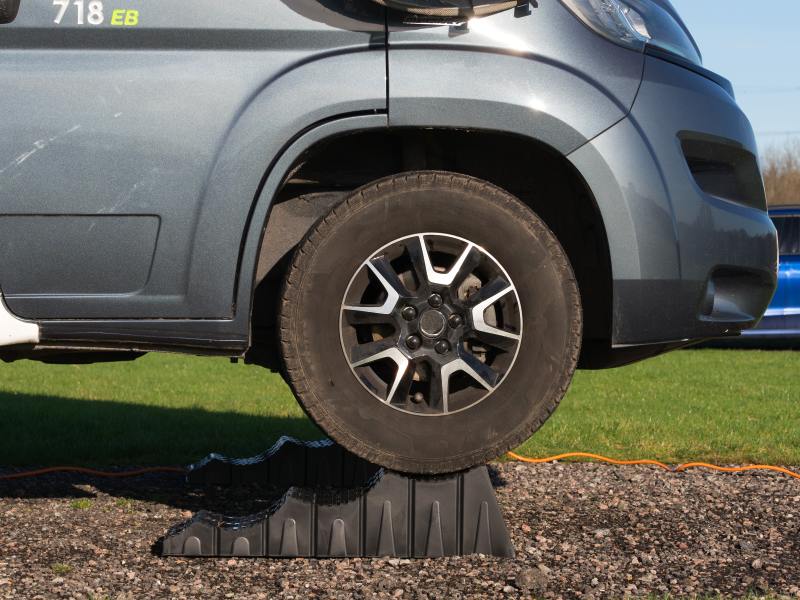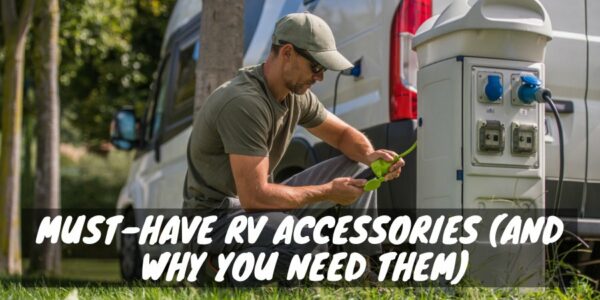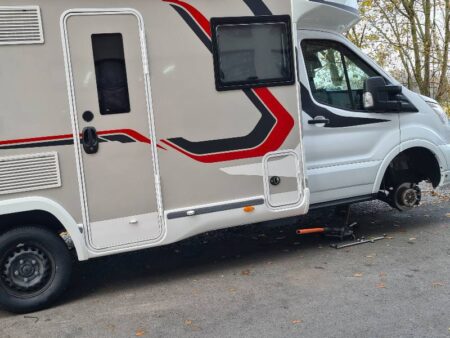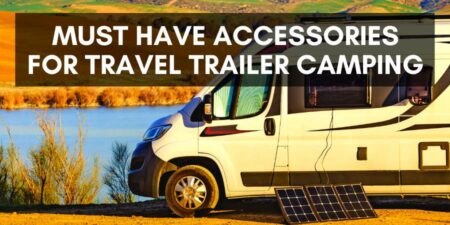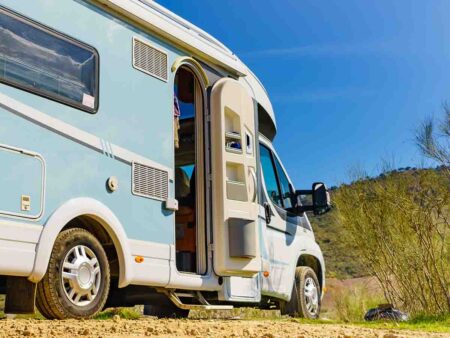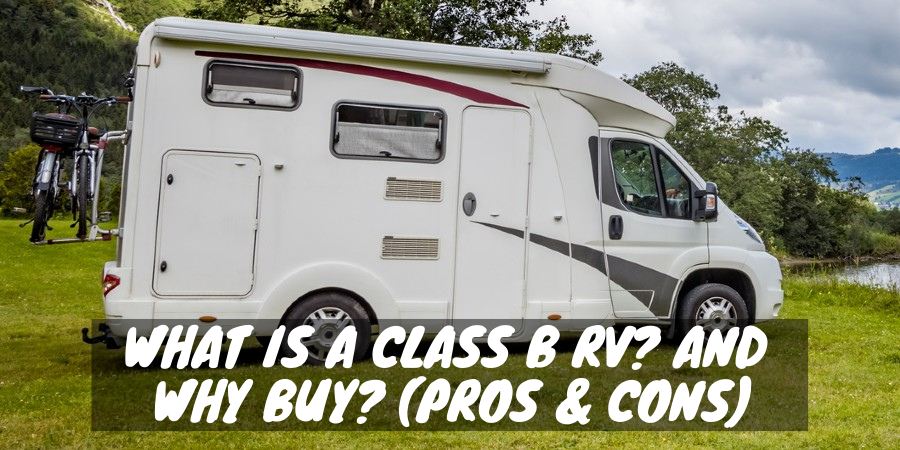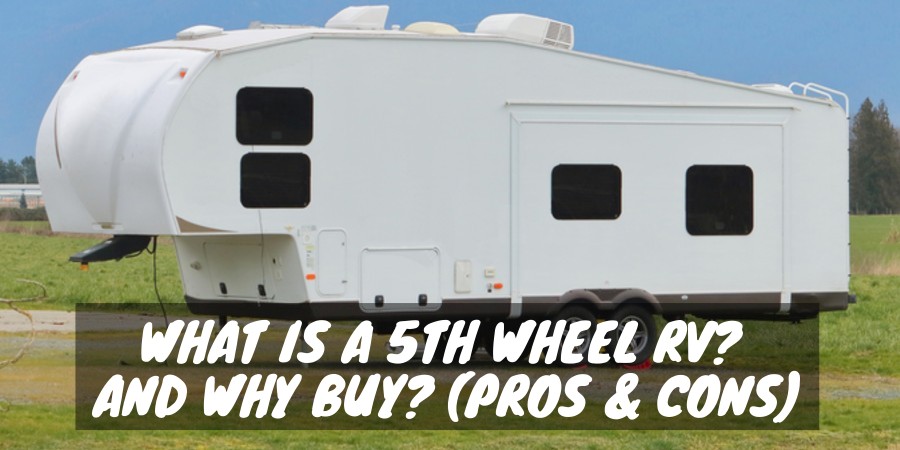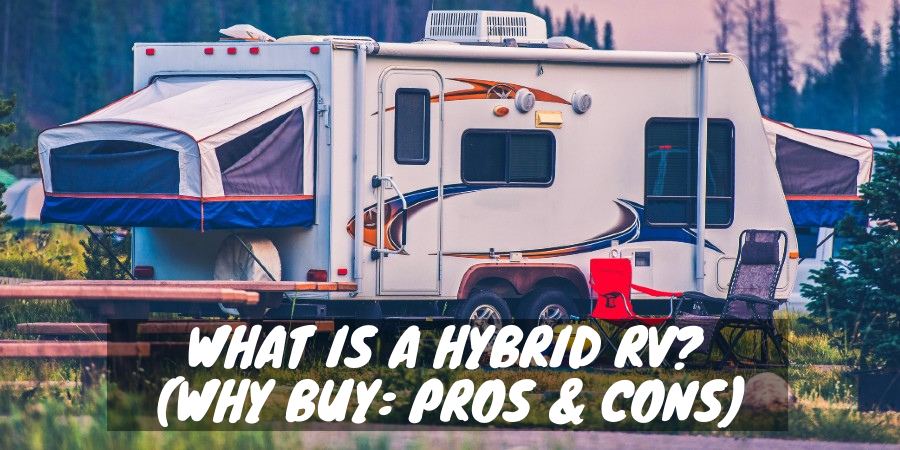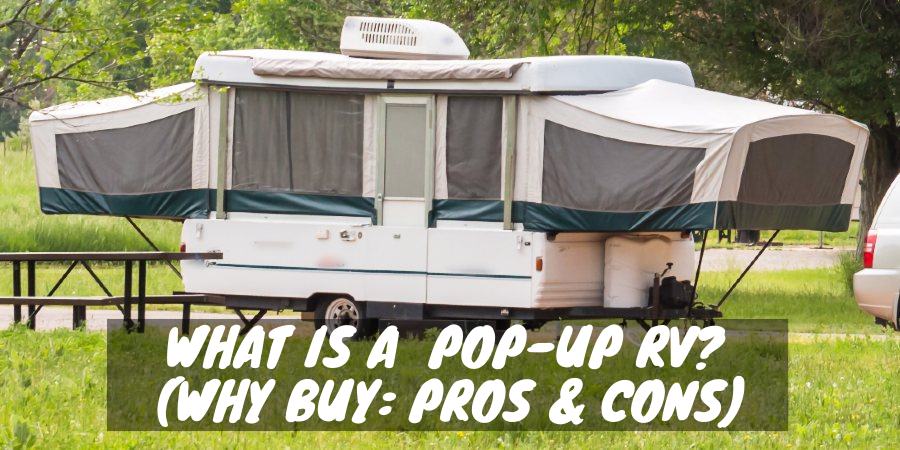The tires are often the last thing people think about when purchasing a new RV, be it a motorhome, travel trailer, or fifth wheel.
Pulling away on any RV trip should be exciting, but having a tire blow out because they were cheap Chinese tires and leaving you stranded on the side of the highway isn’t the type of thrill anyone is seeking.
Many people need to be aware that RV manufacturers install poor-quality tires in their inventory to save money, and tire shops entice shoppers by selling cheap Chinese tires at discount rates.
When you know what to look for when investing in a new or used RV and when choosing new tires for your current recreational vehicle, you can avoid scary and dangerous tire blowouts and travel with peace of mind.
Causes of RV Tire Blow-Outs
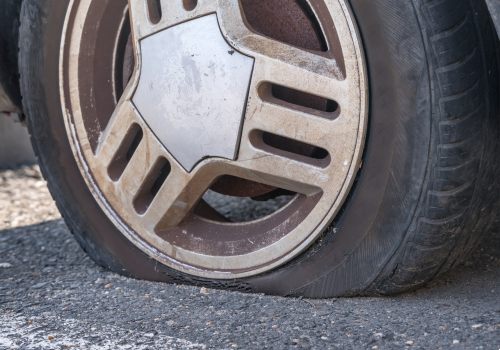
RV tires carry much more weight than a car or truck and must handle the extra stress this puts on all the tire and wheel components. Added to tire stress is that many RVers regularly overload their camper’s GVWR by packing too many supplies.
Another factor contributing to RV tire blowouts is that the camper often travels over thousands of miles of highway pavement but also needs to drive and park over grass, gravel, and dirt, adding to tire wear and tear.
Tires will incur damage when they are spinning quickly when not properly inflated, which increases friction and degrades the rubber. As a result, weakness will appear in the tread or sidewalls and, if not corrected, will ultimately end with a blowout.
Maneuvering through parking lots and gas stations and backing up and parking in campsites often lead to RV tires brushing against or running over curbs, ditches, and other obstacles that damage the sidewalls.
A quick inspection of the tire may only show a superficial scrape in the rubber, but any impact causes weakness, and if those tires are made with cheap materials, they will quickly break down.
RV Tire Blowout Dangers
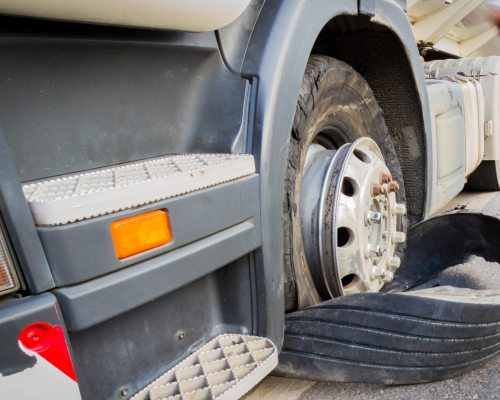
What happens when an RV tire blows out when you’re traveling down the highway? If you’re lucky, you will get a slow flat and have time to safely pull your recreational vehicle to the side of the road and have the tools you need to install your spare.
Unfortunately, most people will not be so lucky. A close RVing friend who pulls a 22-foot travel trailer learned the hard way about purchasing cheap Chinese tires to save a few bucks.
While traveling through the Nevado desert on their seasonal RV trip to Florida, they were cruising along when they heard a loud pop and nearly lost control of the trailer and truck.
Luckily, there were few other vehicles on the roadway, and after stopping, they found not only was the tire shot, but there was damage to the camper box, the tire rim, and the axle. Unfortunately, they had to call and wait several hours for a tow truck with the capability to haul their travel trailer to a repair shop.
So, what did they do when fixing the camper? They installed two new discount tires manufactured in China and continued on their journey, only to have another blowout before they made it 500 miles.
Thankfully, they didn’t have a severe mess after the second blowout, but they did realize paying for high-quality RV tires is well worth the expense. So now they tell everyone trying to save a few bucks on tires that spending a few extra hundred dollars is way more affordable than the cost of repairs, hotels, and mental stress from a tire blowout from cheap Chinese tires.
RV tire blowouts can cause a camper to:
- Swerve into other traffic
- Crack or put holes in the camper box
- Damage wheel and suspension components
- Flip over and often pulls a tow vehicle with it
- Run off the road
Doing your best to avoid RV tire blowouts should always be a top priority, starting with selecting the highest-quality tires you can find.
- Set of 4 New Premium Radial Trailer Tires 225/75R15 10PR, Brand: FREE…
- Full cap ply ( nylon overlay cross entire tread area), significant…
- Featured “Scuff Guard” ring on tire wall for better tire side…
- 8 mm deep tread depth vs 5.6 mm of other cheap competitors, durable…
- Heavy duty 10 ply rated, load range E. Steel belted, speed rating…
What Are ‘China Bomb’ Tires?
Across the RVing community, there are discussions about how buyers drive away from an RV dealership with a new or used travel trailer, motorhome, campervan, or fifth wheel and what risk they take because the tires on the units can “explode” at any time.
The nickname “China bomb” became prevalent when it became clear that the inexpensive tires made in that country were behind many RV tire blowouts due to poor materials and construction.
These tires often have an ST (Special Tire) rating and are made to carry heavy loads. Lower-quality ST tires have a max speed rating of 65 mph, while high-quality tires can handle the stresses of speeds up to 80 mph.
With many US highway speed limits reaching 65-70 mph, it’s hard for RVers to maintain a safe 55 mph speed without causing traffic problems. Therefore, the chance of exceeding the 65 mph rating found on most “China bomb” tires is understandable, yet it leads to more blowouts.
Many Chinese-made tire brands appear fine and have the correct rating for the weight and stress of recreational vehicle use, but they sell at deep discounts compared to American or other tires.
RV manufacturers and dealerships handle hundreds, if not thousands, of units, so keeping tire expenses low helps keep profits high. Tire shops carry “China bomb” tires because they can sell them at a low price, which brings customers to their shop.
Tire shops or RV dealers accomplish higher profits by using cheap tires from China or installing new yet older tires manufactured one or more years prior, placing the burden on the RV owner or shopper to inspect the tires before signing the purchase contract and driving off the lot.
Remember that “China bomb” tires can blow, even if you keep them properly inflated and maintain the wheels.
How to Tell If You Have China Bombs? (Video)
How To Buy Quality RV Tires
Check the Date Code
New tires should have a life expectancy of three to six years.
Learn how to read the date code on the tire sidewall. The Department of Transportation (DOT) requires tire manufacturers to stamp each tire with the date they are made, and you can find easy tutorials online to read the code.
Tire rubber starts to degenerate as soon as they come off the assembly line, so try to ensure the “new” tires on an RV for sale, or those you buy from a store are six months of age or less.
Check the Origin Country of Manufacture
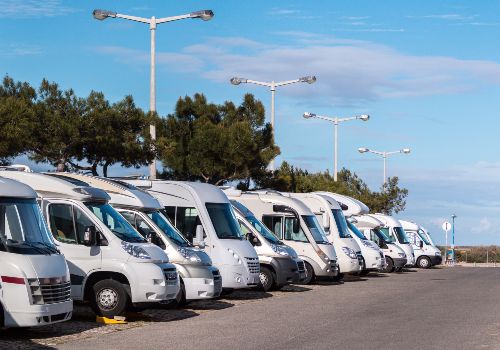
Due diligence is necessary when buying RV tires, especially when learning which brand names you need to recognize from China. First, search the brand and origin of manufacture, even if you assume the company is American-made.
Then, read reviews from several sources about the tires to get an idea of how they perform months and years after purchase.
Pointing out the issues with blowouts in Chinese tires isn’t meant to disparage a specific country. Rather, it’s a direct result of talk within the RVing community about issues with tire blowouts and the brand names that keep popping up.
Over and over again, I hear to avoid RV tires made in China due to failure that can end up being catastrophic. Prevalent issues like leaking tire valves or tread separation can cut your RV vacation short.
Want to Connect With a Community of Over 1,078 RV Enthusiasts?
When Consumer Reports tested Chinese tires sold under the Geostar, Pegasus and Sunny brands, they found them to be anything but a bargain. From poor traction on wet or icy roads to excessive road noise to a shorter-than-expected lifespan, the company states you should consider tires from China if they were the only tires you could afford and your current tires are bald!
Another concern is the influx of “unauthorized” branded tires from China that could very well be counterfeit, adding even more danger to driving with them on your RV.
China exports around 65 million tires yearly under various brand names. Most come from the same Hangzhou Zhongce Rubber Company factory that is the center of lawsuits and recalls due to faulty tire production.
Other brand names of cheap Chinese tires include:
- AKS Tires
- Chaoyang
- Compass Tires
- Goodride
- Telluride
- Westlake
- YKS
RVers dread replacing tires, as it’s a huge expense if you own a recreational vehicle that needs four or more tires. So, while a low-cost tire is enticing, chances are it’s a low-quality Chinese-made tire that you need to avoid.
Match Tire Ratings with Your RV
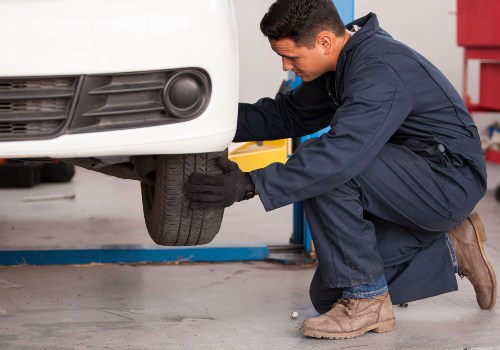
Tire products have various designs to handle specific driving stresses. For example, a tire for a sports car isn’t going to work for an RV, and trailer tires made for hauling light loads won’t work for a full-size camping trailer.
It’s worth it to shop at a reputable tire shop with expert technicians who can explain the various ratings of tires and can match your RV’s weight and usage with the safest tire to handle the job.
However, do your research before visiting a tire shop to narrow down which tire size you need and what type of driving conditions you expect to encounter on your RV trips. For example, if you love boondocking or primitive camping, look for a rugged tire that can handle the weight of your RV, plus off-road conditions.
How to Extend the Life of RV Tires
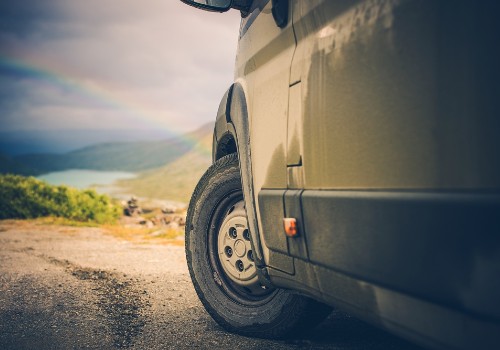
Once you install reliable tires on your camper, always use RV tire covers when not driving. While most people cover their tires when they put their camper into storage, you should make it a habit even if you’re only parking your RV for a weekend camping trip.
Refrain from skimping when buying tire covers, as they protect them from dirt, oils, bird or animal droppings, and UV rays that deteriorate the rubber. Measure the RV tires and ensure you get a set that covers the entire wheel to the ground.
Another way to keep tires in good condition is to ensure you maintain the proper air pressure by checking it every week or by installing a tire pressure monitoring system (TPMS) that will alert you to over or underinflated, or overheating tires.
Make it part of your RV maintenance routine to visually inspect both sides of all your tires for signs of wear. Look specifically for uneven tread wear, fissures, bulges, or sidewall cracks, and immediately replace any tires that show damage.
Lastly, take your RV to a mechanic or tire shop and have them check that lug nuts are tightened to the correct torque.
In Summary
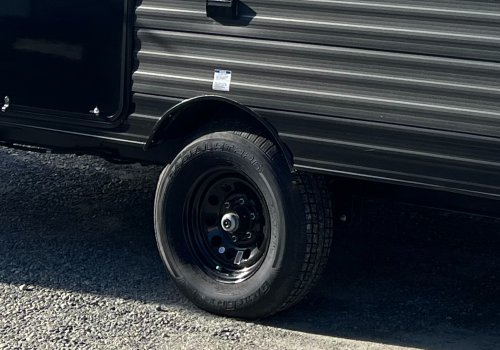
Low-cost, poor-quality tires are prevalent on all new and used RV makes and models, even brands that you may consider luxury-level, so always check them before driving any distance. If you spot cheap Chinese tires, immediately replace them to protect your passengers and investment.
A tire blowout can easily lead to an accident that will require major repairs or cause a total loss of the RV. So, please remember to protect your recreational vehicle by installing the most durable, properly-rated tires no matter what they cost.
"Man cannot discover new oceans unless he has the courage to lose sight of the shore."
-- Andre Gide

